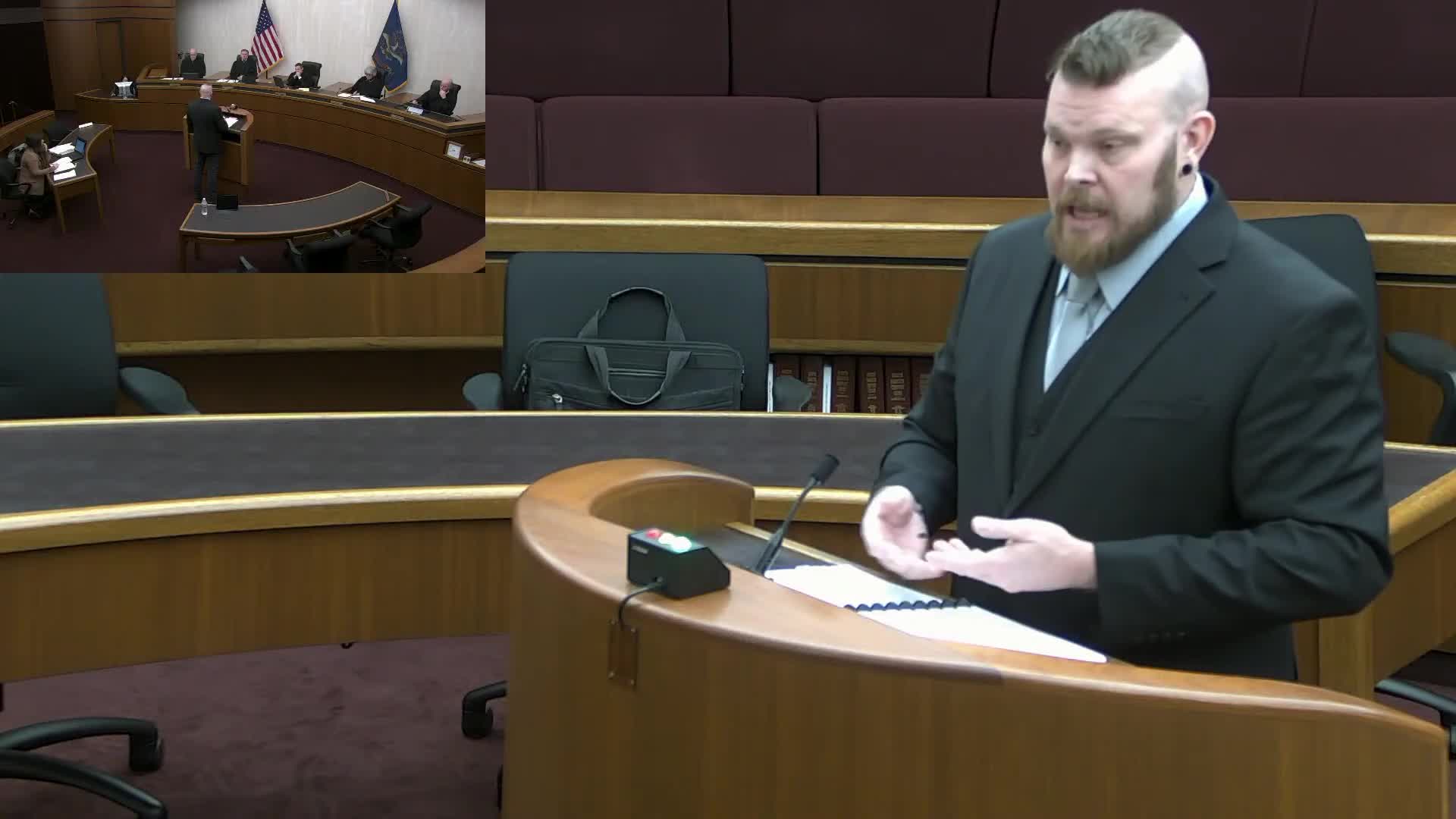Legal Debate Explores Charges in Child Assault Case Involving Parent
January 11, 2025 | Supreme Court , State Agencies, Organizations, Executive, North Dakota
This article was created by AI summarizing key points discussed. AI makes mistakes, so for full details and context, please refer to the video of the full meeting. Please report any errors so we can fix them. Report an error »

In a pivotal discussion during the North Dakota Supreme Court hearing on January 10, 2025, the complexities surrounding the charges in a child abuse case were thoroughly examined. The case, State v. Ruot, raised significant questions about the nature of evidence admissibility and the implications of charging decisions on the trial's outcome.
Central to the debate was whether the state should have included charges of attempted sexual assault alongside the physical assault charge. Legal representatives argued that the absence of these charges limited the context available to the jury, potentially skewing their understanding of the events that transpired. The defense contended that if the state had opted to charge attempted sexual assault, it would have allowed for a more comprehensive presentation of evidence, including the actions leading up to the physical assault.
The discussion highlighted the delicate balance between probative value and prejudicial impact. The court grappled with the idea that while the context of the father-daughter relationship and the alleged intent behind the actions were crucial, introducing certain evidence could unfairly bias the jury. The defense emphasized that without charging attempted sexual assault, the prosecution was constrained to prove only the essential elements of physical assault, which could lead to an incomplete narrative of the incident.
The justices acknowledged the emotional weight of the case, particularly given the age of the victim and the nature of the allegations. They recognized the potential for jurors to be influenced by emotionally charged testimony that might not directly relate to the charges at hand. This concern underscored the importance of clear and precise charging decisions to ensure a fair trial.
As the court deliberates on these issues, the implications for future cases are significant. The outcome of this case could set a precedent for how similar charges are approached in North Dakota, particularly in cases involving sensitive and complex family dynamics. The discussions from this hearing will likely resonate in legal circles, influencing how prosecutors and defense attorneys navigate the intricacies of evidence and charges in the pursuit of justice.
Central to the debate was whether the state should have included charges of attempted sexual assault alongside the physical assault charge. Legal representatives argued that the absence of these charges limited the context available to the jury, potentially skewing their understanding of the events that transpired. The defense contended that if the state had opted to charge attempted sexual assault, it would have allowed for a more comprehensive presentation of evidence, including the actions leading up to the physical assault.
The discussion highlighted the delicate balance between probative value and prejudicial impact. The court grappled with the idea that while the context of the father-daughter relationship and the alleged intent behind the actions were crucial, introducing certain evidence could unfairly bias the jury. The defense emphasized that without charging attempted sexual assault, the prosecution was constrained to prove only the essential elements of physical assault, which could lead to an incomplete narrative of the incident.
The justices acknowledged the emotional weight of the case, particularly given the age of the victim and the nature of the allegations. They recognized the potential for jurors to be influenced by emotionally charged testimony that might not directly relate to the charges at hand. This concern underscored the importance of clear and precise charging decisions to ensure a fair trial.
As the court deliberates on these issues, the implications for future cases are significant. The outcome of this case could set a precedent for how similar charges are approached in North Dakota, particularly in cases involving sensitive and complex family dynamics. The discussions from this hearing will likely resonate in legal circles, influencing how prosecutors and defense attorneys navigate the intricacies of evidence and charges in the pursuit of justice.
View full meeting
This article is based on a recent meeting—watch the full video and explore the complete transcript for deeper insights into the discussion.
View full meeting
